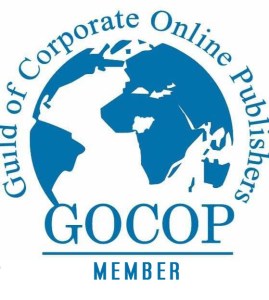Olokun is often depicted as a male or female deity, and sometimes as both gendered aspects in different traditions. Olokun is a powerful and revered deity in the Yoruba pantheon, representing the unexplored depths of the ocean. Olokun is believed to reside in the deepest parts of the ocean, controlling its vast expanse and the mysteries that lie within. Olokun is often associated with wealth, prosperity, abundance, purification, healing, protection, fertility, childbirth and the mysteries of the deep sea. In traditional Yoruba religion, offerings and prayers are made to Olokun for blessings in these areas, as well as protection from the dangers of the ocean. Olokun is often depicted as a mermaid or a mysterious figure shrouded in water. The worship of Olokun is prevalent in Yoruba culture and has influenced various rituals and beliefs surrounding the ocean and water. Olokun is revered by the Yoruba people of Nigeria and parts of West Africa as a significant Orisha (deity) in their pantheon.
In Psalm 18:9-12 King David was talking about God and His place of abode saying; “He bowed the heavens also, and came down with darkness under His feet. And He rode upon a cherub, and flew; He flew upon the wings of the wind. He made darkness His secret place; His canopy around Him was dark waters and thick clouds of the skies. From the brightness before Him, His thick clouds passed with hailstones and coals of fire.”
King David is a mystical (spiritual) person, one would think that he was probably talking about Olokun in this verse as it was known that the base of Olokun’s abode is believed to be in the deepest and darkest parts of the ocean, away from human eyes and reach. But the darkness in in that verse is known to be “Choshekh” meaning dark, darkness, obscurity, night, dusk, misery, falsehood or ignorance. According to the Hebrew Bible, “Choshekh” accompanied God and this was evidenced in Exodus 14:19-20 where it was said; “And the Angel of God, who went before the camp of Israel, moved and went behind them; and the pillar of cloud went from before them and stood behind them. So it came between the camp of the Egyptians and the camp of Israel. Thus it was a cloud and darkness to the one, and it gave light by night to the other, so that the one did not come near the other all that night”.
The event in Exodus 14:19-20 happened after God instructed Moses to tell the children of Israel to go forward and cross the Red Sea in Exodus 14:15-16 where it was recorded that; “And the Lord said to Moses, “Why do you cry to Me? Tell the children of Israel to go forward. But lift your rod, and stretch out your hand over the sea and divide it. And the children of Israel shall go on dry ground through the midst of the sea.”
In Exodus 14:21-22 it was said that; “Then Moses stretched out his hand over the sea; and the Lord caused the sea to go back by a strong east wind all that night, and made the sea into dry land, and the waters were divided. So the children of Israel went into the midst of the sea on the dry ground, and the waters were a wall to them on their right hand and their left.”
This many might find hard to believe, but the awesomeness power of God showcased in Exodus 14 is the incredible power and grace God had given to one of His many sons whom the Bible referred to as the angel of the Lord in this verse and whom the Yorubas unknowingly believed to be Olokun.
In Yoruba mythology and spiritual beliefs, Olokun is considered the owner and master of the waters and is thought to reside deep beneath the sea. As it was also said in Psalm 18:11. While the Bible believe Psalm 18:11 was referring to God, Exodus 14:19-20 made us understand that the event in Psalm 18:11 was not God but the Angel of God who went before the camp of Israel, the very Angel that moved and went behind them; the same Angel that metamorphose from the pillar of cloud before them into the pillar of fire behind them. Standing between the camp of the Egyptians and the camp of Israel. The cloud and darkness to the Egyptians, and the light by night to the children of Israel.
Psalm 18:9-12 that says; “He bowed the heavens also, and came down with darkness under His feet. And He rode upon a cherub, and flew; He flew upon the wings of the wind. He made darkness His secret place; His canopy around Him was dark waters and thick clouds of the skies. From the brightness before Him, His thick clouds passed with hailstones and coals of fire.” Was referring to the event
Worshippers of Olokun seek blessings and guidance from this deity through rituals, ceremonies, prayers, offerings, and other forms of devotion. Due to the belief that Olokun resides in the depths of the ocean, worshippers often perform rituals, ceremonies, and offerings near bodies of water as a way to connect with and honour the deity. Offerings such as shells, coins, jewellery, and other items may be cast into the water as gifts to Olokun, symbolizing respect and gratitude for the blessings that the deity provides.
Olokun plays a vital role in the spiritual and cultural practices of the Yoruba people, and the deity is honoured in various ceremonies and festivals throughout the year. Even though people are in the habit of offering items, often presented at bodies of water, such as rivers or the ocean, as a means of reaching out to Olokun and honouring this powerful deity’s presence. The exact location of Olokun’s abode remains mysterious and sacred but in reality, most of the things people throw into the Waters all in the name of honouringOlokun are uncalled for because none of the sons of God are made to be worshipped not even Jesus Christ but God and God alone and this was made clear in Luke 4:8; “And Jesus answered and said to him, “Get behind Me, Satan! For it is written, ‘You shall worship the Lord your God, and Him only you shall serve.” Apostle John confirmed this in Revelation 22:8-9 where it was said; “Now I, John, saw and heard these things. And when I heard and saw, I fell to worship before the feet of the angel who showed me these things. Then he said to me, “See that you do not do that. For I am your fellow servant, and of your brethren the prophets, and of those who keep the words of this book. Worship God.”
We’re to Worship God and God alone. But we can recognize and reference the presence, the duties and the responsibilities of the sons of God among us. The majority of us believe that Jesus Christ is the only son of God, but that is not true. Before Jesus Christ and Apostle Paul talked about the sons of God in the physical, the Bible made us understand that there were other sons of God in the spiritual realm;
Gen 6:1-4: Now it came to pass when men began to multiply on the face of the earth, and daughters were born to them, that the sons of God saw the daughters of men, that they were beautiful, and they took wives for themselves of all whom they chose. And the Lord said, “My Spirit shall not strive with man forever, for he is indeed flesh; yet his days shall be one hundred and twenty years.” There were giants on the earth in those days, and also afterwards, when the sons of God came into the daughters of men and they bore children to them. Those were the mighty men who were of old, men of renown.
Job 1:6: Now there was a day when the sons of God came to present themselves before the Lord, and Satan also came among them.
Job 2:1: Again there was a day when the sons of God came to present themselves before the Lord, and Satan came also among them to present himself before the Lord.
Job 38:7: When the morning stars sang together, and all the sons of God shouted for joy?
Olokun is not a figure that is mentioned in the Bible but if you are studious you can easily with the help of the Holy Spirit discover his identity and and mystical power. Olokun is said to be a deity from the traditional Yoruba religious practices and belongs to the Yoruba pantheon, which is separate from the Christian and Jewish texts of the Bible, but the trust is, that Olokun does not belong to the Yorubas and Olokun is bigger than the Yorubas. Yes, the Bible primarily focuses on figures, events, and stories from the Christian and Jewish religious traditions, and does not reference deities or cultures from other belief systems like Olokun. Olokun is specific to the Yoruba culture and is primarily worshipped and acknowledged within that context.
There is no specific Bible verse that mentions Olokun or alludes to a deity residing in the ocean depths like Olokun. However, there are verses in the Bible that address the depths of the sea and the mysteries of the ocean, which could be seen as somewhat related to Olokun’s domain. One of the verses alluding to the depths of the sea is found in Psalm 107: 23-38 was says; “Those who go down to the sea in ships, who do business on great waters, they see the works of the Lord, and His wonders in the deep. For He commands and raises the stormy wind, which lifts the waves of the sea. They mount up to the heavens, they go down again to the depths; their soul melts because of trouble. They reel to and fro, and stagger like a drunken man, and are at their wits’ end. Then they cry out to the Lord in their trouble, and He brings them out of their distresses. He calms the storm so that its waves are still. Then they are glad because they are quiet; so He guides them to their desired haven. Oh, that men would give thanks to the Lord for His goodness, and His wonderful works to the children of men! Let them exalt Him also in the assembly of the people, and praise Him in the company of the elders. He turns rivers into a wilderness, and the water springs into dry ground; a fruitful land into barrenness, for the wickedness of those who dwell in it. He turns the wilderness into pools of water and dry land into water springs. There He makes the hungry dwell, that they may establish a city for a dwelling place, and sow fields and plant vineyards, that they may yield a fruitful harvest. He also blesses them, and they multiply greatly, and He does not let their cattle decrease.
This verse speaks about those who go out to sea, highlighting the dangers and obstacles faced in the deep waters and the many benefits embedded in it. One can easily say that these references do not directly equate or relate to Olokun from the Yoruba religious beliefs. Olokun’s significance and mythological attributes are specific to the Yoruba cultural context, and interpretations or connections to biblical verses should be made with caution and respect for the distinct traditions.
Olokun’s underwater palace or kingdom is thought to be a place of great beauty and power, filled with all manner of aquatic beings and spirits. In Yoruba cosmology, the ocean is seen as a sacred and spiritual realm, and Olokun is revered as the ruler of this watery domain. In Psalm 72:8-11 King David was praying for King Solomon and he said; “He will rule from sea to sea and from the River to the ends of the earth. The desert tribes will bow before him and his enemies will lick the dust. The kings of Tarshish and distant shores will bring tribute to him; the kings of Sheba and Seba will present him gifts. All kings will bow down to him and all nations will serve him.”
This is King David directly connecting his son, King Solomon to the main source of all wealth. If we read the entire Psalm 72, we’ll be amazed by the pronunciations he made on him saying; “Endow the king with your justice, O God, the royal son with your righteousness. He will judge your people in righteousness, your afflicted ones with justice. The mountains will bring prosperity to the people, the hills the fruit of righteousness. He will defend the afflicted among the people and save the children of the needy; he will crush the oppressor. He will endure as long as the sun, as long as the moon, through all generations. He will be like rain falling on a mown field like showers watering the earth. In his days the righteous will flourish; prosperity will abound till the moon is no more. He will rule from sea to sea and from the River to the ends of the earth. The desert tribes will bow before him and his enemies will lick the dust. The kings of Tarshish and distant shores will bring tribute to him; the kings of Sheba and Seba will present him gifts. All kings will bow down to him and all nations will serve him. For he will deliver the needy who cry out, the afflicted who have no one to help. He will take pity on the weak and the needy and save the needy from death. He will rescue them from oppression and violence, for precious is their blood in his sight. Long may he live! May gold from Sheba be given him. May people ever pray for him and bless him all day long. Let grain abound throughout the land; on the tops of the hills may it sway. Let its fruit flourish like Lebanon; let it thrive like the grass of the field. May his name endure forever; may it continue as long as the sun. All nations will be blessed through him, and they will call him blessed. Praise be to the Lord God, the God of Israel, who alone does marvellous deeds. Praise be to his glorious name forever; may the whole earth be filled with his glory. Amen and Amen. This concludes the prayers of David son of Jesse.
No wonder King Solomon became the first person ever to get involved in importation and exportation as it was recorded in 1 Kings 9:26-28 that; “King Solomon also built ships at Ezion Geber, which is near Elath in Edom, on the shore of the Red Sea. And Hiram sent his men — sailors who knew the sea — to serve in the fleet with Solomon’s men. They sailed to Ophir and brought back 420 talents of gold, which they delivered to King Solomon”.
Everything King David pronounced on King Solomon came to reality. In 2 Chron 9, it was said that; “When the queen of Sheba heard of Solomon’s fame, she came to Jerusalem to test him with hard questions. Arriving with a very great caravan — with camels carrying spices, large quantities of gold, and precious stones — she came to Solomon and talked with him about all she had on her mind. Solomon answered all her questions; nothing was too hard for him to explain to her. When the queen of Sheba saw the wisdom of Solomon, as well as the palace he had built, the food on his table, the seating of his officials, the attending servants in their robes, the cupbearers in their robes and the burnt offerings he made at the temple of the Lord, she was overwhelmed.
She said to the king, “The report I heard in my own country about your achievements and your wisdom is true. But I did not believe what they said until I came and saw with my own eyes. Indeed, not even half the greatness of your wisdom was told me; you have far exceeded the report I heard. How happy your men must be! How happy your officials, who continually stand before you and hear your wisdom! Praise be to the Lord your God, who has delighted in you and placed you on his throne as king to rule for the Lord your God. Because of the love of your God for Israel and his desire to uphold them forever, he has made you king over them, to maintain justice and righteousness.”
Then she gave the king 120 talents of gold, large quantities of spices, and precious stones. There had never been such spices as those the queen of Sheba gave to King Solomon. (The men of Hiram and the men of Solomon brought gold from Ophir; they also brought algumwood and precious stones. The king used the algum wood to make steps for the temple of the Lord and the royal palace and to make harps and lyres for the musicians. Nothing like them had ever been seen in Judah.)
King Solomon gave the queen of Sheba all she desired and asked for; he gave her more than she had brought to him. Then she left and returned with her retinue to her own country. The weight of the gold that Solomon received yearly was 666 talents, not including the revenues brought in by merchants and traders. Also, all the kings of Arabia and the governors of the land brought gold and silver to Solomon.
King Solomon made two hundred large shields of hammered gold; six hundred bekas of hammered gold went into each shield. He also made three hundred small shields of hammered gold, with three hundred bekas of gold in each shield. The king put them in the Palace of the Forest of Lebanon. Then the king made a great throne inlaid with ivory and overlaid with pure gold. The throne had six steps, and a footstool of gold was attached to it. On both sides of the seat were armrests, with a lion standing beside each of them. Twelve lions stood on the six steps, one at either end of each step. Nothing like it had ever been made for any other kingdom. All King Solomon’s goblets were gold, and all the household articles in the Palace of the Forest of Lebanon were pure gold. Nothing was made of silver because silver was considered of little value in Solomon’s day. The king had a fleet of trading ships manned by Hiram’s men. Once every three years it returned, carrying gold, silver and ivory, and apes and baboons.
King Solomon was greater in riches and wisdom than all the other kings of the earth. All the kings of the earth sought an audience with Solomon to hear the wisdom God had put in his heart. Year after year, everyone who came brought a gift — articles of silver and gold, robes, weapons and spices, and horses and mules. Solomon had four thousand stalls for horses and chariots, and twelve thousand horses, which he kept in the chariot cities and also with him in Jerusalem. He ruled over all the kings from the River to the land of the Philistines, as far as the border of Egypt. The king made silver as common in Jerusalem as stones, and cedar as plentiful as sycamore — fig trees in the foothills. Solomon’s horses were imported from Egypt and all other countries”.
Don’t forget that King David was never a Christian. Technically, he was an idol worshipper just as Abraham, Isaac, Jacob and the Twelve sons of Jacob. The Bible made it clear how Joseph’s mother stole their family idol and took it with her when she was leaving her father with Jacob and how Joseph married the daughter of the Chief Idol Priest in Egypt. The practice of worship of the Ark of the Covenant is a practice of idolatry even though the name of God was attached to it just as it is still being attached to all the gods and idols in existence today.
David like every other monarch in this age was and they have in-depth knowledge and understanding of the mystics and the workings of the same; as well as how to appease them and move them in their favour.
Olokun holds a significant place in Yoruba cosmology as a powerful and revered deity, embodying the forces of the sea and the blessings of wealth and prosperity for those who honour and worship the deity.
It is believed by the Yorubas that Olokun lives in a white tureen or a sealed terra-cotta pot that houses her secrets. Usually, Olokun is depicted as living at the bottom, darkest part of the ocean. If Olokun did not stay at the bottom of the ocean, people worried that Olokun would cause too much damage to humankind.
Some of the powers and attributes associated with Olokun include:
Control over the depths of the ocean
Olokun is believed to have power over the vast and mysterious depths of the ocean, as well as the creatures that dwell within it.
Your way was in the sea, Your path in the great waters, and Your footsteps were not known. Ps 77:19
Wealth and prosperity
Olokun is often associated with wealth and abundance, and worshippers may seek Olokun’s blessings for financial success and prosperity.
Then you will look and be radiant, your heart will throb and swell with joy; the wealth on the seas will be brought to you, to you the riches of the nations will come. Herds of camels will coverer your land, young camels of Midian and Ephah. And all from Sheba will come, bearing gold and incense and proclaiming the praise of the Lord. Isa 60:5-6
Purification and healing
Olokun is also associated with purification and healing rituals. Worshippers may seek Olokun’s assistance in cleansing and purifying themselves or their surroundings.
And He said to him, “Go, wash in the pool of Siloam” (which is translated, Sent). So he went and washed, and came back seeing. John 9:7
Protection
Olokun is believed to offer protection to those who honour and worship the deity. Followers may seek Olokun’s protection from harm and negative influences.
The Lord is my rock, my fortress and my deliverer; my God is my rock, in whom I take refuge. He is my shield and the horn of my salvation, my stronghold. I call to the Lord, who is worthy of praise, and I am saved from my enemies. The cords of death entangled me; the torrents of destruction overwhelmed me. The cords of the grave coiled around me; the snares of death confronted me. In my distress, I called to the Lord;
I cried to my God for help. From his temple he heard my voice; my cry came before him, into his ears. The earth trembled and quaked, and the foundations of the mountains shook; they trembled because he was angry. Smoke rose from his nostrils; consuming fire came from his mouth, and burning coals blazed out of it. He parted the heavens and came down; dark clouds were under his feet. He mounted the cherubim and flew; he soared on the wings of the wind. He made darkness his covering, his canopy around him — the dark rain clouds of the sky. Out of the brightness of his presence clouds advanced, with hailstones and bolts of lightning. The Lord thundered from heaven; the voice of the Most High resounded. He shot his arrows and scattered [the enemies], great bolts of lightning and routed them. The valleys of the sea were exposed and the foundations of the earth laid bare at your rebuke, O Lord, at the blast of breath from your nostrils. He reached down from on high and took hold of me; he drew me out of deep waters. He rescued me from my powerful enemy, from my foes, who were too strong for me. They confronted me on the day of my disaster, but the Lord was my support. He brought me out into a spacious place; he rescued me because he delighted in me. Psalm 18:2-19
Fertility and childbirth
Olokun is sometimes associated with fertility and childbirth, and worshippers may seek Olokun’s assistance in matters related to conception and childbirth.
It’s important to note that beliefs and practices related to Olokun can vary among different Yoruba communities and practitioners. Olokun is a complex and multifaceted deity with deep cultural and spiritual significance for many people.
Is Olokun the God almighty? No, he is not. But he is one of the many sons of God we knew little or nothing about but still in existence and doing great things for the Lord in their rights and responsibilities.
Is Olokun to be worshipped? The choice is yours. Jesus Christ had never told us to worship Him, but today the majority of us are worshipping Him and God is showing forth His powers and majesties through Him in our lives.
Sam Adeoye
April 5, 2024
08:34 pm




















